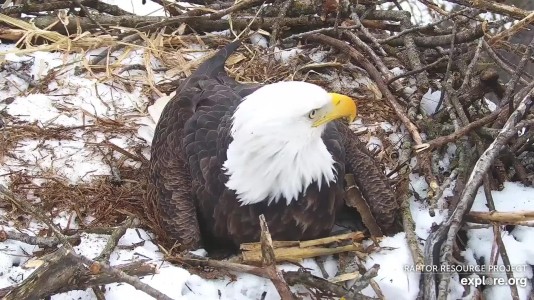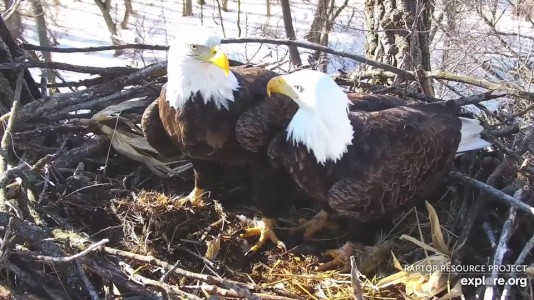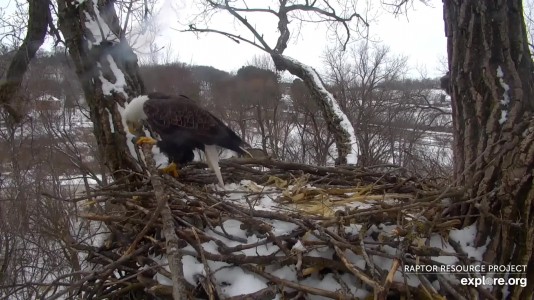Project Puffin Island News!
On Pond Island, one of Project Puffin’s smallest research islands which focuses on studying and protecting common terns, the seabird biologists found signs that a Great Horned Owl was hunting in the tern colony.
The biggest indication was that the colony of common terns were “dreading” each evening and abandoning the island for the night rather than staying near their nest territory. Researchers found a pellet and also feather spread, which is left when the owl plucks plumes from a fresh kill to more easily transport back to its home nest.
After two nights of watching the terns abandon, the Pond Island crew led by island supervisor Kristina McOmber decided to set up an owl trap. Built with a pressure plate and spring loaded bars that snap shut, the traps are set up atop tall poles, creating perfect perch spots for owls to use while hunting. When the bars close on the leg of an owl, the surface is padded to avoid injury, and the owl has a long chain to allow them some mobility while they wait to be released.
At first, the researchers set up only one perch to test the waters. At sunrise they found the trap had been set off and the long chain stretched to its limit, suggesting that the owl had gotten the trap caught on a talon before making a narrow escape.
The next night the Pond Island crew set up five traps in the evening, being sure that the trap poles were the tallest objects around to tempt the owl in for a perch. They also wove pieces of sod and grass over the trap to camouflage it.
At 4:30 this morning the researchers walked out and found that they had trapped a male Great Horned Owl. Adam DiNuovo transported the owl to Avian Haven in Freedom, Maine, where the animal can be safely released in the North Woods of Maine. Great Horned Owls breed earlier in the season and will not be missed by a nest or a mate at this point in the season. By carefully relocating this bird of prey, it ensures that the common tern colony on Pond Island will remain intact.
Now that the tern colony is heading into its peak laying period, island supervisor Kristina McOmber said it was “a relief” to have captured the owl so that the terns will stay in the colony at night, especially right now when “eggs are dropping everywhere!”
If the terns were to continue to abandon in the night, their new eggs would not be successful. Since the owl was removed, the tern colony is already less skittish and starting to settle back into its routine.
A big thanks to all of our dedicated researchers at Project Puffin who protect Maine’s seabird heritage!










